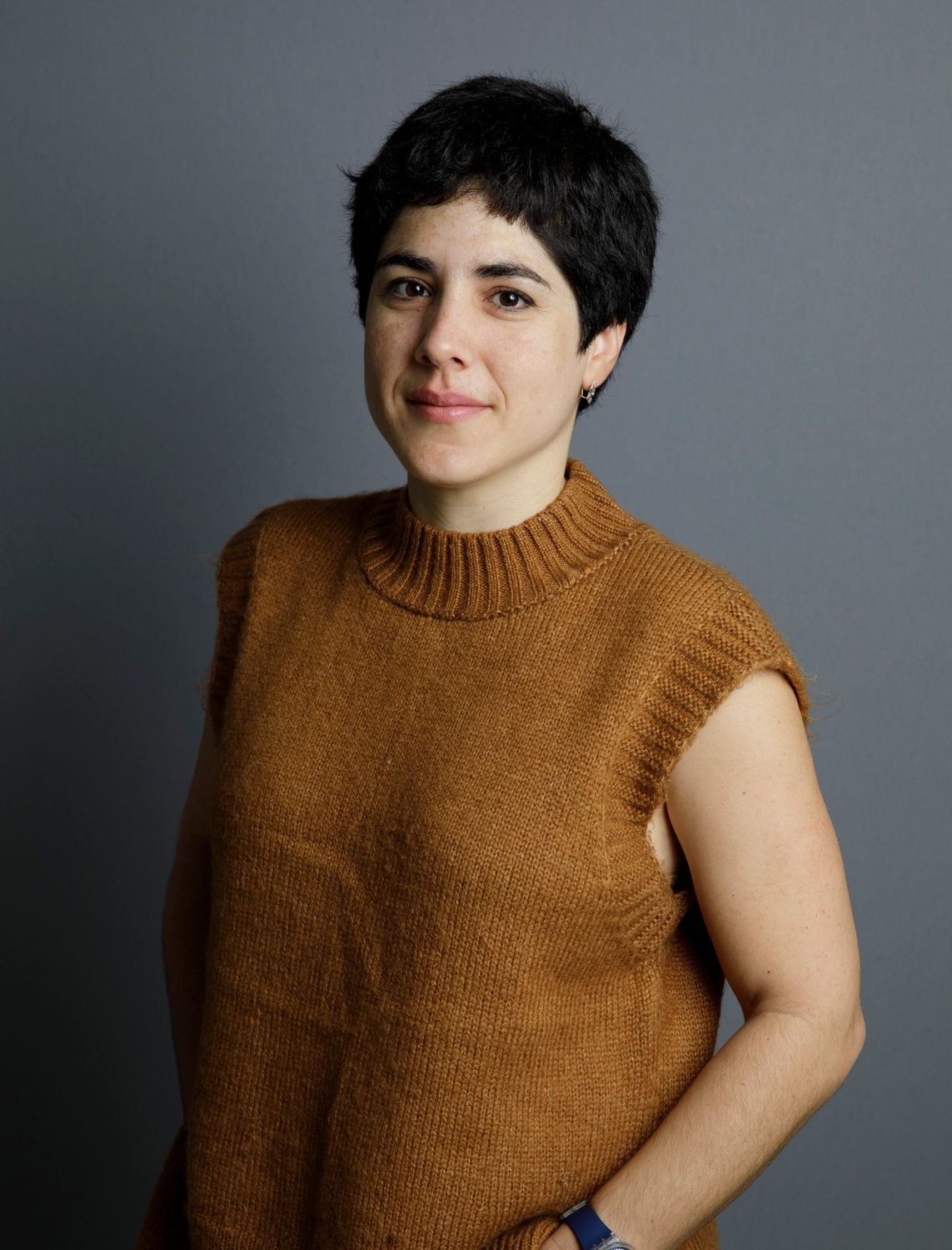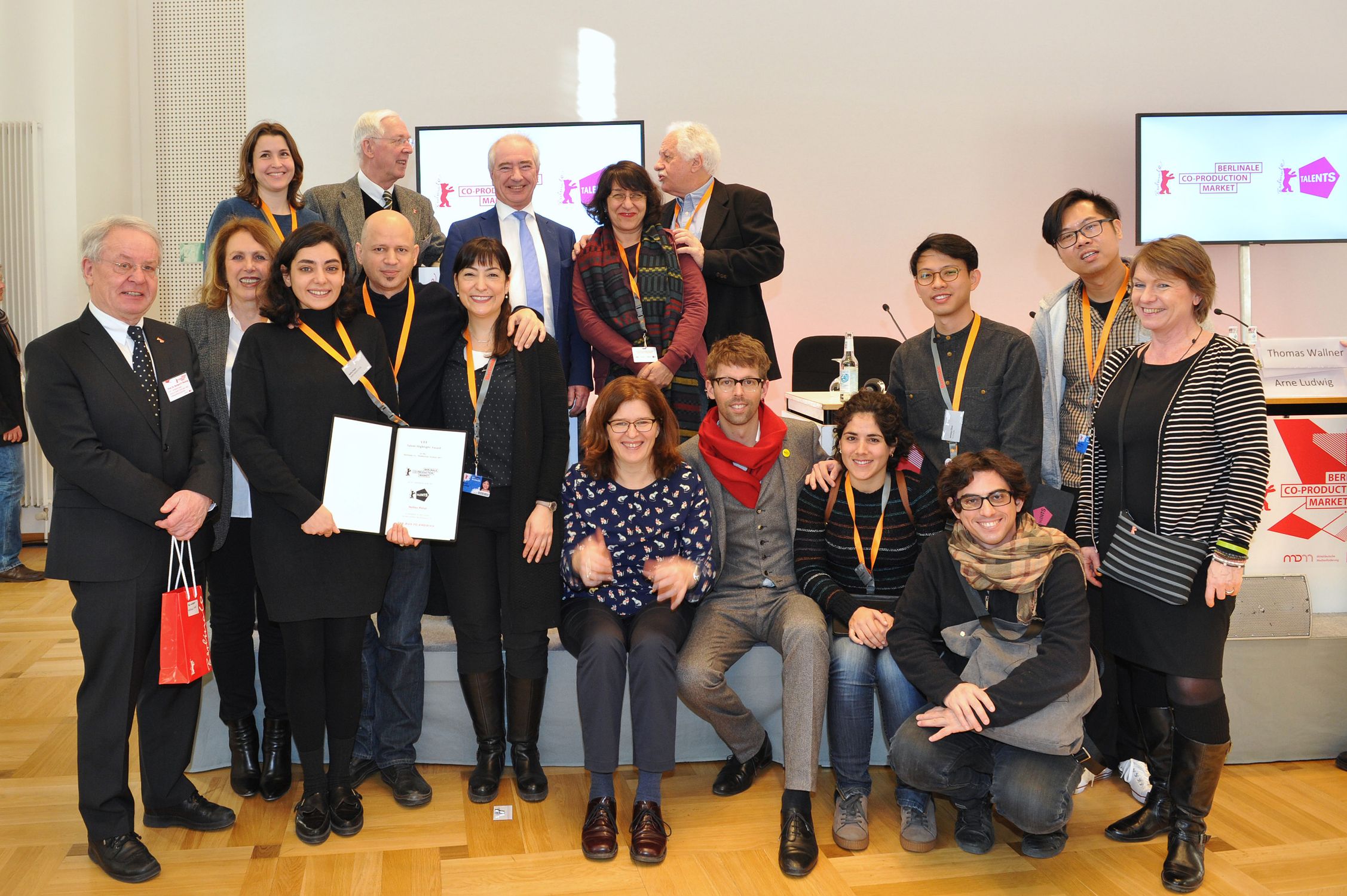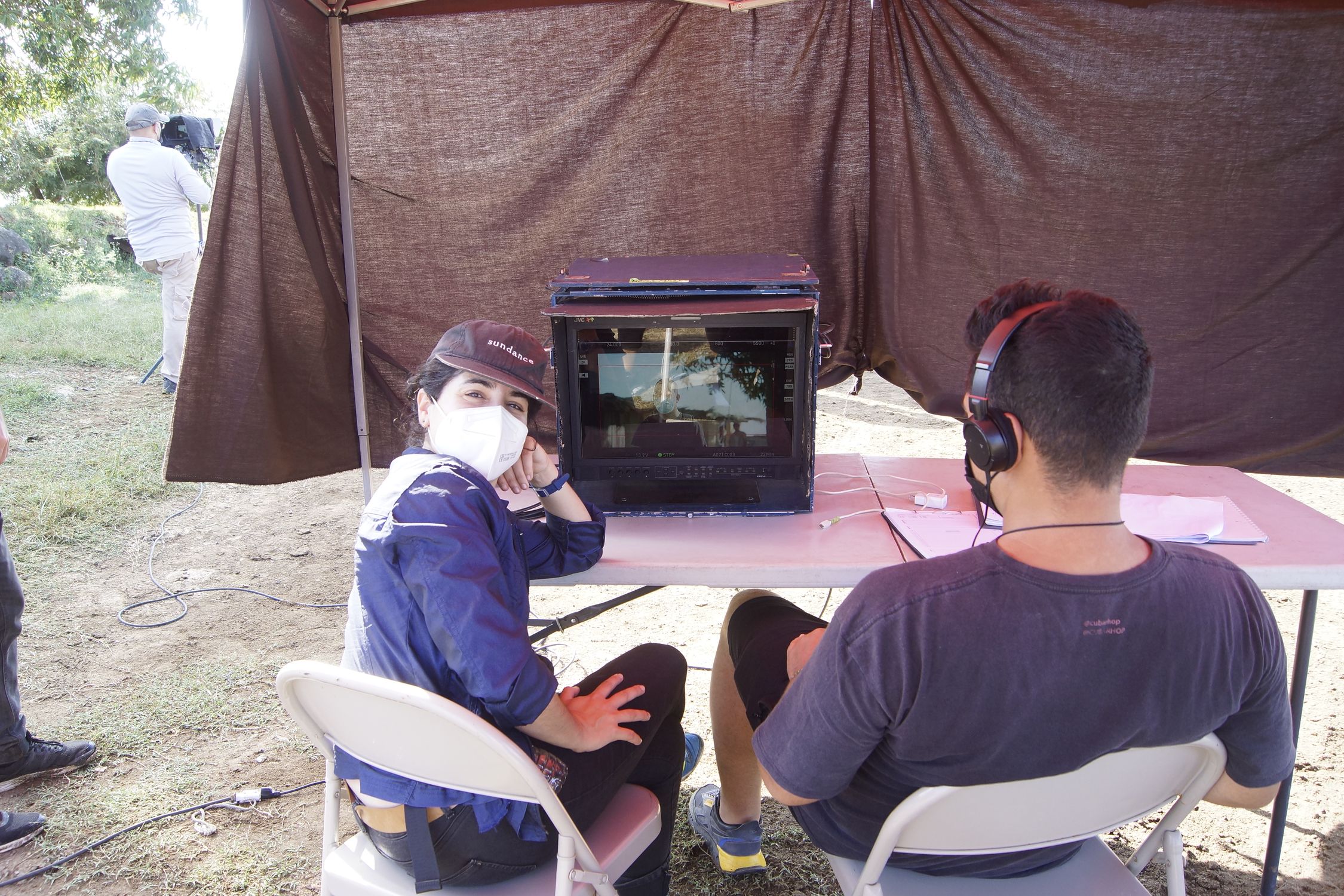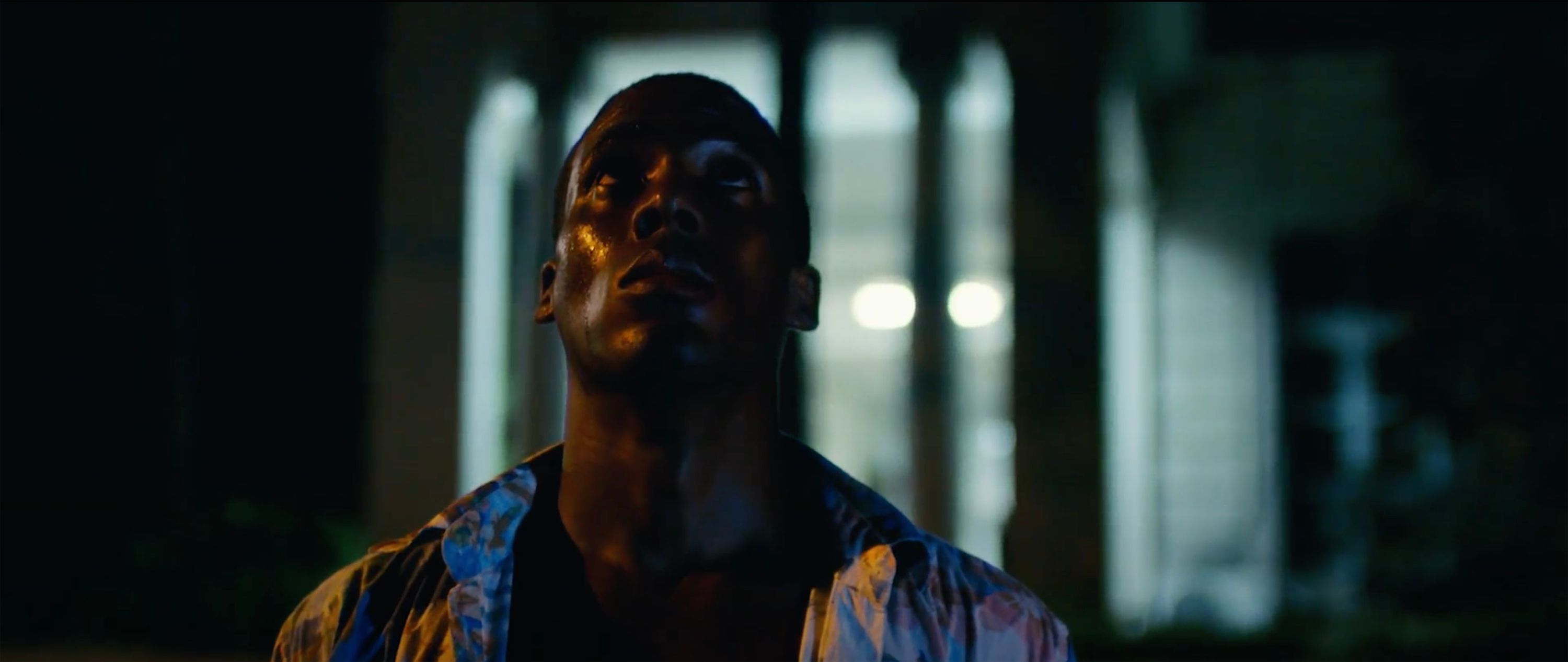Interview: Berlinale Talents & Berlin Film Residencies alumna Maria Carla Del Rio
Producer Maria Carla studied at the EICTV (International Film School of Cuba) and was selected for Berlinale Talents in 2015, and again in 2017 for the Talent Project Market with the project "Shock Labour". She has lived and worked in Canada and Cuba, and was invited to speak at the World Cinema Fund Day at the Berlinale in 2020. In 2021 she was selected for one of the Berlin Film Residencies, the Nipkow Programme, where she developed “The Fox and the Raven”, a project written and directed by Cecilia Otero. She is currently working on postproduction of “Shock Labour”, developing “Cocuyos”, a feature film by Berlinale Talents alumna Anne Thieme, and, since October 2022, is the new executive producer at Fasten Films.
We caught up with her to hear about her time with us, at the Nipkow Programme, and much more.

How was your first experience of Berlinale Talents in 2015?
That was an unforgettable experience because it was my first visit to Berlin and my first time at one of the most prestigious festivals in the world, where I had the chance to meet filmmakers with whom I would work a few years later.
And what followed?
I was living in Montreal at that time, where I was having a research stay in Concordia University. Meanwhile Cuba was in bloom. The rapprochement between the US and its historical rival generated a lot of interest. I saw an opportunity for professional growth, so I returned and started to develop films and to work in Nuevas Miradas EICTV, the only lab for films in development in Cuba. In February 2020 I was ending the shooting of Bettina Blümner´s “Vamos a la playa”, a coproduction between Jamila Wenske (Achtung Panda! and me, Marinca Filmes), when Vicenzo Bugno invited me to talk about Caribbean cinema within the frame of World Cinema Fund Day at Berlinale.
Berlin was the last city I traveled to before the pandemic. One year later, I came back because of the Nipkow Programme. That is why I feel a special connection with the city and festival.
You were selected for Berlinale Talents' Talent Project Market in 2017, where you, as producer, presented "Shock Labour". What did you gain from that experience?
Talent Project Market was a spotlight on “Shock Labour” and on Cuban films. I invited the director to pitch with me and we got a Special Mention (and 1000 euros) at the VFF Highlight Pitching Forum, which represented a major boost for the development of the project. As a Cuban producer, I gained knowledge about coproducing with Europe, a bigger network, and on a personal level, I gained a lot of joy.

You ended up partnering with Berlinale Talents alumnae Gema Juarez Allen and Sandino Saravia Vinay to co-produce. How did that come about?
During my first Talent experience in 2015, I saw Gema pitching, and winning, at the VFF Highlight Pitching Forum. Two years later, I was in the same place as her, looking for partners to coproduce and finance a Cuban film. During the meetings of the Talent Project Market, Gema sat on the “Shock Labour” table and we made a “match”.
At that time, I already knew Sandino through my friend Martha Orozco and when the project was mature enough, in 2017, during Guadalajara Film Festival, Gema, Sandino and I decided to work together on it. The last members to come on board were Jean de Forêts and Ameliè Jacquis (Petit Film). I feel fortunate to have such big producers on my side.

In 2021 you were selected for Nipkow Programm with your project "The Fox and the Raven". What did the fellowship do for you and your project, how was the experience?
“The Fox and the Raven” is a project written and directed by Cecilia Otero, who I had already worked with producing the short film “Aburo”, with DoP Alana Mejía González, another Berlinale Talents alumni. We worked very well together so in 2020 Cecilia talked to me about “The Fox…”, her debut feature film inspired by her mother’s first date with a half-sister she never knew.
The Nipkow Programme gave me the opportunity to submit the project to script doctors, who discussed with me the weakness and strength of the script, and German producers for guidance on the financing side too as I wanted to understand how German financing works.
We also had a very interesting meeting with Berlinale Talents' Christine Tröstrum and Kathi Bildhauer, and Berlinale director Carlo Chatrian. It was like visiting the family because the team members of the festival are very kind. They explained how the Coproduction Market works and Carlo spoke about the programming. It was a privilege to learn first hand the selection criteria from one the best festivals in the world.

What are the biggest challenges you face as a producer in Cuba?
Financing is the biggest challenge ever. In 2019, thanks to the pressure of a group of filmmakers and the political will (at that moment) of the Cuban Government, the first Cuban Fund was founded and the Cuban producer’s dream came true. But the happiness only lasted one year, and now we are back to no financing at all. After 2020, producing in Cuba is comparable to what Tom Hanks had to do in order to survive on the island in “Cast Away” film. The lack of internet turns simple tasks like submissions, uploading a video, online meetings etc. into an odyssey. The international bank transfers are also a challenge for Cuban producers, because the U.S embargo fines some banks if they trade with Cuba. On top of all of that, political censorship is rife.
What are the biggest changes you'd like to see in the industry in the near future?
I’d like to experience a greener film industry.
Find out more about the opportunities available at Berlin Film Residencies here.